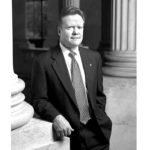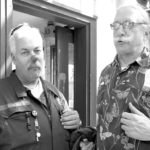Federal judges have handed a pair of setbacks to California officials in their long-running battle to regain control of health care in the state’s … [Read more...]
Archives for April 2009
U.S. Prison Reform Commission Proposed
Everyone is either directly or indirectly affected by crime, increasing rates of recidivism, costs of incarceration, and having those who have the … [Read more...]
Patch Adams Shows S.Q. His ‘Healing With Humor’
“When I see a prison, I ache,” medical doctor and humanitarian Patch Adams commented during a recent visit to San Quentin. “I see massive inequality … [Read more...]
Cronk Paroles After 26 Years
One of San Quentin's pioneers to the multitude of self-help / therapeutic programs that are in place today was paroled on April 13. Don Cronk has … [Read more...]
National News Briefs
SACRAMENTO – 3-27-09 – A Sacramento-based federal appeals court judge has blocked a key part of Proposition 9; the Victims’ Bill of Rights Act of … [Read more...]
Christopher ‘Bert’ Boatman Freed
After 23 years of prison, Bert Boatman has gained his freedom and has reunited with his family. With skills as a journeyman machinist, welder, plumber … [Read more...]
SQ Hosts Sentencing Reform Lectures
Starting the last week of April, the College Program will launch a series on sentencing policy and sentencing reform. These lectures will take place … [Read more...]
Author Dave Eggers Speaks On the Sudanese Struggle
More than 40 San Quentin prisoners were afforded the opportunity to hear the acclaimed New York Times best- selling author Dave Eggers, review one of … [Read more...]
Health and Wellness Corner
The San Quentin News “Health and Wellness Corner” column runs every month. A University of California, San Francisco, health professional student will … [Read more...]
Lifers Benefit From Decision
The attorneys for Uncommon Law have won a significant victory concerning the procedures in the recently voted in Marsy’s Law. A deal was agreed upon … [Read more...]






